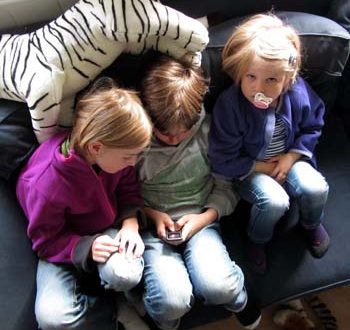Our blog this week is written by guest blogger Dr. Marina Everri who is the Head of Research with Zeeko.
There is no doubt that screen devices such as smartphones and tablets are extremely attractive for the small hands and growing brains of young children: touchscreen function, animations, bright colours, sounds, all in one small self-contained tool! Young children’s curiosity is borderless and touchscreen devices seem to be designed to respond to children’s appetite for exploration.
However, the usage of these devices has raised several concerns among parents of children, especially for those under the age of two. What is the right age to allow children to use screen devices? For how long should young children be allowed to use these devices? What should parents do when young children show an increased interest for smartphones and tablets? Parents are often tormented by these questions, which accompany their day to day lives.
Marina Everri, the cyber-psychologist collaborating with Zeeko is the mother of a 12-month old boy and a researcher working on children’s health and technologies, she says ‘the temptation to let my son sit with my tablet is high, especially when we fly back to my home country and entertain him for some hours becomes definitely challenging. However, we need to remember (and I remind myself) that there is not ‘a right or wrong’ when it comes to screen time and child development but it really depends on the content and context of usage of technologies’.
Recent research as well as American Academy of Paediatrics’(AAP) guidelines recommend to not expose children to media until they are 18 months and limit their usage to video chats. However, as Marina has specified, it is extremely important to consider the kind of content that is offered to children and where and with whom that content is consumed. In fact, also AAP stressed that a specific media plan should be developed for each family considering family’s values and parenting styles which should guide the choice of media content.
Today, there are useful applications developed to support child development: from literacy to social-emotional skills and hand-eye co-ordination, and draw on well-established games for toddlers, such as hide-and-seek and peek-a-boo, as well as e-books that can be read together with parents.
Therefore, there are no universal rules that can be applied to every family and child when it comes to media usage for young children. However, let’s remind ourselves that parental mediation continues to be an important aspect to consider when introducing children to tablets: this means you should enjoy watching video, playing games and learning the alphabet together with your child!


